the abelard school
Preparing thoughtful, inquisitive and motivated students to excel in university since 1997
Testimonials from Alumni
This is what some of our alumni have to say about Abelard
Sivan Piatigorsky-Roth,
Abelard graduate 2016
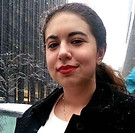
I went into Abelard right after spending seventh grade at a middle school I hated. It was stuffy and preppy and prided itself on its academic rigor, despite treating its students with condescension. I went into Abelard worried about making the leap in Math, but excited to finally be getting the academic trust and respect I wanted from teachers.
I found over my four years there that the teachers had tremendous faith in us, in a way that completely changed my life and my self esteem. I went from quite literally failing math my first semester to getting grades in the sixties solely because a teacher repeatedly told me I could do better and never once doubted my (honestly quite doubtable) ability. I had teachers who handed us Hamlet, Paradise Lost, Ulysses, and the entire Bible knowing that we could handle it, who taught us political and historical complexities, and who spoke to us like we were equals.
When teachers recognize that young people are not less intelligent, but simply have not yet had the time to encounter all the ideas and texts that older people have, a truly incredible school environment emerges, where the small student body is engaged and excited about the work, and the teachers are just as passionate about teaching. As I head into my second semester at University, I appreciate the trust and respect of Abelard more every day. I know how to engage with concepts and readings and I know how to approach others with the same faith that I was given at Abelard, and I am truly and endlessly grateful for that.
Malcolm Kennedy
Abelard graduate 2015
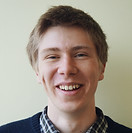
I think high school is inevitably a time of great conformism. So all I can say is, it was incredible to spend that formative time surrounded by a culture where learning is the coolest thing you can do.
I came to Abelard after (barely) completing grade 9 at a big public school, and the changes were a lot to take in: the class sizes were tiny, the classrooms were tiny, but most importantly the love of learning was huge and inescapable. I think it took me a whole year to get acclimatized to all of that, but almost as soon as I arrived I was starting to realize, with the help of my teachers and peers, that learning was something I could really enjoy (despite having spent the past year denying it). I think that deep down in every kid of that age is a capacity to love learning, and Abelard provides a space where that is teased out, welcomed, and enriched in each student. The passion that the teachers have for their subjects is not only inspiring but contagious, so that the whole student body gets infected, and will leave a class about quantum chemistry only to talk about quantum chemistry, or leave a class on Voltaire only to talk about Voltaire, long into the lunch break. It’s a wonderful thing to be in a place where the culture of learning is as vibrant outside the classroom as in.
Starting university in 2015, especially in a foreign country, was hugely challenging for me — but on the academic side, the proposition remained fundamentally the same as it was at Abelard: work hard (yes, they’ll make you do that at Abelard), and think and write critically about questions at the centre of the field you’re studying. Abelard has real academic integrity in that way, more than any other high school I’ve heard of, in Toronto or elsewhere. Students get loads of experience critically analyzing texts and scientific data, and they receive feedback on and write essays very frequently, arming them with a skillset that is readily applied to any area of academic endeavour. I went on to study linguistics after graduating; although I never studied anything directly related to linguistics while at Abelard, I came to Cambridge with an academic mindset and skillset which (although I didn’t know it at the time) allowed me to dig into the entirely new content of my subject with old and trusted tools.
Comparing Abelard to the public school experience that preceded it for me, and my time at university that has followed, I realize that Abelard is, in all but name, more like university than high school. It is a place where arts and sciences are undertaken with equal vigour, and inquiry into any aspect of the world is tirelessly nurtured, criticized, and directed by teachers who are passionate, thoughtful, and sensitive. I could not have asked for a better place to learn what it is to learn.
Roy Magen
Abelard graduate 2014

I came to Abelard after attending a public middle school. I first visited Abelard because a friend who attended it would not stop talking about how great it was, and indeed after visiting, I knew that this was where I wanted to go to high school.
I remember on the first day of my first year at Abelard, the entire school came together in the main hall, where we had a sort of introduction assembly. The principal then gave a speech during which he expressed what I would eventually discover to be an essential to the attitude towards education adopted at Abelard. It is true that education prepares us for jobs, for university, for life. Education is an important way to gain knowledge. I knew this before I came to Abelard, but until that meeting, I had not acknowledged the important role education plays as an end in itself.
Indeed, this idea that we can learn for the sake of learning was not just an idea that the teachers tried to impart to the students. One of my favourite things at Abelard was that learning was not only socially acceptable, but actually "cool". Not doing the English readings would not only leave you out of the conversation in class, but also in the hallway.
At Abelard, I discovered an interest in languages, but had I not also learned to treat learning as a recreational activity, this newfound interest would only have led to regret. If not for the sake of learning, why should I start to learn a new language as an adult if I do not plan to become an interpreter? (I'm currently studying Mandarin.) The chances of becoming fluent are slim, and the volume of work required colossal. If I would learn languages with the sole goal of becoming someone who knows them, how could I motivate myself while making such slow progress? Equipped with the attitude I learned at Abelard, these are non-issues, and my pursuit of this new language is not only made possible, but also enjoyable.
Fortunately, the teachers at Abelard did not forget that education also serves many other purposes. Apart from being suitably prepared for university, I was delighted that when I expressed my desire to become fluent to my French teacher at Abelard, the response was "you will be;"and indeed I was able to get around in France without switching to English. In Latin class we read the Aeneid, and Caesar's account of the Gallic wars. Furthermore, since Abelard has such diverse strengths, I had a much better idea of my interests, and had already explored many disciplines, so by the time I got to university, I could spend more of my time taking courses relevant to the subject I wanted to pursue.
Vitalik Buterin is co-creator of software development platform Ethereum
Abelard graduate 2012
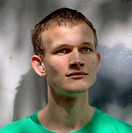
The four years that I spent at Abelard proved to be among the most interesting and productive years of my life. Although I was never particularly inspired by the traditional education system (having reasonably good grades but never really seeing a reason why I should put time and effort toward my homework rather than earning an extra level on World of Warcraft) the moment I started studying at Abelard I noticed my attitude and my results almost immediately and drastically change. Something about the environment, whether it was the level of dedication and focus on intellectual inquiry, the closer connection between students and teachers or the level of depth at which the material was taught, made me want to learn, and to focus on learning as my primary goal. And after four long and exciting years, I think that the effort paid off.
I have had plenty of chances since then, both in university and in my professional life, to talk to other people about their own experiences in high school. And while I heard many horror stories about the intellectually deadening environment and disconnection from reality that other schools can impose, I realized that at Abelard, in the words of security researcher Dan Kaminsky, "entire classes of bugs are missing." First off, the quality of the subject matter at Abelard is excellent. It is difficult to find a school where one can learn about the nuances of the Greek writings of Thucydides, solve problems from second-year-university calculus, fluently read and understand French literature and study the thermodynamic underpinnings of organic chemistry on the same floor of the same building. At the same time, however, education is ultimately much more than simply memorizing individual facts, or even learning individual concepts, and it is in fact there that the Abelard educational program truly shines. In our classes, we would make deep investigations into the meanings behind ancient and contemporary literature, critically analyze the arguments made in the works of prominent philosophers, historians and columnists, and even read and evaluate both sides of the same issue.
After I graduated from Abelard, I went to the University of Waterloo to study computer science, but I left in order to co-found and work on several startups in cryptocurrency and digital finance, most notably Bitcoin Magazine and the Ethereum project. I am truly grateful to have the opportunity to work in such an interesting and interdisciplinary area of industry, where I have the chance to interact with cryptographers, mathematicians and economists prominent in their fields, to help build software and tools that already affect tens of thousands of people around the world, and to work on advanced problems in computer science, economics and philosophy every week.
It is true, deep knowledge of Norman Davies' opinions on the causes of World War I or the argument made by Thomas Aquinas for the existence of a deity can only get you so far in "the real world". However, every so often it happens that I come up with a new solution to some problem, and I notice that the reasoning that I took in order to get there had come from somewhere. Sometimes it's the step-by-step propositional reasoning, clear language and mathematical rigor that was learned during my brief stay at Waterloo, and at other times it's the process of looking at the big picture, seeing the problem simultaneously from multiple angles and combining the different approaches taken by different fields that Abelard exemplifies so well. And ultimately, no matter what school, home school or no school you attend to learn, that's the part of education that matters most: learning how to think, learning how to reason and learning how to learn.
Elijah Teitelbaum
Abelard graduate 2011

Although I only attended Abelard for three years, I can justifiably say that they were the most formative and essential years of my education. While I currently pursue a bachelor of arts at Mount Allison University I cannot help but think how helpful the critical and analytical skills I learned in those years have been. In fact, the principal reason I decided to attend Mount Allison was because the small class experience that I had at Abelard was so impactful. I wished to continue the same trend in my education: Abelard at university, so to speak.
Academically, Abelard is superb. The teachers there constantly pushed me to greater heights. Whether it was through learning Latin, physics, mathematics, literary analysis, or any number of diverse topics which are touched upon in the curriculum, Abelard involved me in an engaging liberal arts education. Even more so, I felt as though I was truly developing as a student, reading increasingly advanced English texts – Moby Dick is now a favourite of mine – as well as furthering my knowledge and skill in dealing with topics in history, psychology, philosophy, and the like. Most importantly, I can honestly say that while at Abelard I always felt as though I had the resources and tools necessary to further my interests and learn about what was important to me.
But of course, school is about much more than just education. Socially, I found Abelard to be welcoming and kind. The small size of the school – only about 50 students – meant that I was able to know everyone within the first week. Beyond that, I found that everyone was incredibly friendly; I cannot think of one time when I ate lunch alone or was unable to find people with whom to chat. And, furthermore, although the size of the school seemed daunting at times, I was never at a loss for extracurricular activities. While I myself took part in the student council, others joined the debate society, model UN, or even started their own clubs. In the end I saw that the small size is hardly a limit, but a tool by which the community at Abelard has been formed; it allows the school to host the close-knit and dedicated student body which is there.
I still try to drop by from time to time; Abelard inspires that sense of belonging in its students. It is more than just a simple school: it is a place of education, development, and life-long lessons.
Paulina Smoljanski
Abelard graduate 2006
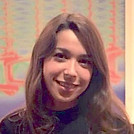
My name is Paulina Smoljanski and I’m from Berlin, Germany. I attended a very good high school (“Gymnasium”) in Berlin, where I was a good enough student, but there wasn’t really anything that was of particular interest to me. However, in Germany it is common to spend one year abroad during high school, in order to master a foreign language. This is done before the two final years of Gymnasium, which is spent in preparation for the Abitur (a nation-wide exam, which gives you admission to university). Many of my friends went abroad to different countries: the USA, France, England. My family and I decided that I should also go abroad for a year to improve my English – and I did. That is when I was lucky enough to be introduced to the Abelard School. I had only just turned 16 and I experienced something that would have been unimaginable to me a year before. In Toronto, I found out that it is possible to love your school so much that you’re excited to get up in the morning and go to class. That it’s possible to learn not because you have to, but because you want to! That there are teachers who come into school in the morning not just because it’s their job and because it pays their bills, but because they love teaching and want to see each individual student improve and grow as a person. That it’s possible to spend a weekend looking forward to Monday, when you can return to school. (When I told this to my German friends, they clearly thought something must be wrong with me! But I can’t blame them, they hadn’t experienced what I did.) When my year at Abelard came to an end, I couldn’t imagine going to any other school – after this incredible experience, I couldn’t possibly go back to my German school. It wasn’t easy but I managed to persuade my parents that I really had to stay in Canada one more year and finish high school in Abelard.
With the preparation I got at Abelard, I was able to get high marks on a number of A.P. exams after my final year. Thanks in part to these, I got accepted to St Andrews University in Scotland, where I received a degree in Neuroscience. I love what I am studying and I love my university, but I know that I wouldn’t be here if not for Abelard. Although it may sound cheesy, Abelard has not only taught me to appreciate education but also to understand its importance in life. I would not be the person I am now if not for Abelard.
Rebecca Brenner,
Abelard graduate 2008

I was fifteen, and I was going to school for the first time in my life. I was terrified. I didn't know what to expect, but I imagined that all my worst fears would be realized that day. My walk to school was fraught with misgivings as I wondered what had ever possessed me to give up home-schooling in favour of private schooling. When I finally arrived at the building, I walked up to the front door of the school...only to be greeted by the smiling face of a girl around my age. And that sums up my relationship with the Abelard School ever since that first moment; it has never failed to yield pleasant surprises.
When I say 'Abelard School' I mean many things, but foremost I mean the teachers. It is the founding teachers who have always made Abelard special. Five more intelligent, personable, and inspiring individuals one could not hope to meet, and they all share the goal of making the Abelard the best it can be. Individuals with largely varied interests, they ensure that students are taught with equal rigour in all subjects from multiple, well-informed points of view.
Another integral part of the school is, of course, the students, or Abelardians as we call ourselves sooner or later. Although the student population changes from year to year as some students graduate and others enter the school, there is a certain citizenship in the school that yields a feeling of continuity over time. Being an Abelardian, then, means that there is no felt difference between a grade 9 and a grade 12 student. Even throughout my time at the University of Toronto, as a Psychology Specialist, I continued to think of myself as an Abelardian.
One skill that is particularly well-developed amongst Abelardians is the ability to think and work independently. It is an important asset for life in general and one that is crucial for a successful university career. Paradoxical as it may seem at first glance, it is the individual attention and guidance students receive at Abelard that make us capable of subsequently working well independently. In my experience, all the assistance and advice I gained from my teachers at Abelard helped me to solve problems for myself subsequently. It also gave me the confidence to speak up and ask for individual attention even in large university classes.
Because I had the tools to distinguish myself from other students, I gained many opportunities in the Psychology department at U of T. Among my happiest moments were being chosen on three separate occasions to undertake individual research projects in professors' labs, being invited by a professor to work as a paid research assistant in her lab, and being trained to conduct interviews with children and their parents for a longitudinal study in another lab. Although those opportunities were not directly effected by Abelard, I feel that the school had a big part in making them possible. And that will continue to be the case in anything that I do because I came to Abelard at a very formative time of my life and I feel that it will always be a part of who I am.
Moira DeValence, M.D.
Abelard graduate 2006
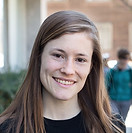
I was fortunate to spend my last two years of high school as part of the small and quirky community that is The Abelard School. Looking back, I can see that my time at Abelard has not only allowed me to succeed in other academic pursuits, but has profoundly shaped the person that I am.
Attempts to explain the Abelard experience often fall into the trap of reducing a complex system to its constituent parts. We talk about the small class sizes: when I came in grade eleven, my largest class had ten students and my smallest, only three. We talk about the teachers: unquestionably, their passion and dedication is the driving force of the school. We talk about the students: their eccentricities, energy, and ideas. When we do this, our statements are true, but they are incomplete.
Abelard’s greatest strength lies in its emergent properties. It is in the excitement about education that exists there. It is in the sense of lifelong curiosity. And it is in the empowerment to become an independent learner. Students are encouraged to read sources in the original, to form and defend their own ideas, and to follow a broad course of studies in order to experience how different disciplines enrich each other. To choose only one of myriad benefits from my time at Abelard, this sense of personal agency in navigating the intellectual world has been the most important in my further studies and choice of career.
After leaving Abelard, I completed my Bachelor of Science, Life Sciences at Queen’s University. I then spent a year travelling and working as a research assistant at Toronto General Hospital before beginning medical school at the University of Toronto. Now in my second year, I continue to rely on lessons learned at Abelard – for instance, how to balance particular knowledge with an understanding of its wider context, or that one can pursue a love of the arts and the sciences rather than choosing between them. Ultimately, medicine offers a career of lifelong learning, and I can think of no better preparation than Abelard.
Anne-Marie Zapf-Belanger
Abelard graduate 2005

With my Harvard degree behind me, it is now very easy for me to see how instrumental Abelard has been in getting me to where I am today. In preparing me and my classmates for higher learning, in teaching us to read and think critically, and most of all in opening our wondering eyes to the pure excitement of academic learning, Abelard was nothing short of spectacular.
I initially embarked upon my secondary studies elsewhere, but as I very soon discovered, I was never cut out for life at a big public school. I hated the anonymity of a regular school with its 30-something class sizes; I was frustrated by the bureaucratic inflexibility of some of the teachers and administrators; but worst of all, I found the course material boring and uninspiring. Some part of me didn't want to be reading watered-down textbooks - where the classic works of Western literature are briefly summarized in a 50-word blurb at the side of the page - forever. It's not hard to imagine my excitement then, when in my very first history class at Abelard, a thick packet of photocopied papers was plopped down in front of me: our introductory reading assignment was the first book of Thucydides' History of the Peloponnesian War.
My coursework at Abelard only got meatier. It is a school where all the grade 10 students read The Iliad, where the grade 12 English class reads Joyce's Ulysses, and where the third-year Latin class reads Virgil in the original. Academically, Abelard gives its students something to sink their teeth into. But it wasn't just the interesting and rigorous coursework that made me come to love Abelard. Guiding us through such a challenging curriculum was a set of the most intelligent, highly educated, and dedicated teachers I have ever known. Whether to help with a difficult concept, to provide extra information for curious students, or simply to chat about this or that, Abelard's teachers with their infinite patience were always there for us.
Abelard, with its small size, inclusive warmth, and quirky student body, sees each of its classes gel together and learn from each other. Abelard not only guided me towards a great university experience, but it also gave me the skills I required to thrive there, and the sense of belonging to a community that has enabled me to stand on my feet.
Dr. Christopher Thompson-Walsh, PhD in computer science, Cambridge University, currently employed at Google
Abelard graduate 2002
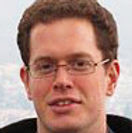
Abelard Raises the Bar in Mathematics
The Abelard School gave me an excellent grounding in mathematics and a broad range of subjects, and gave me the confidence and skills necessary to pursue mathematically intense work throughout my academic and professional careers. Increasingly, good quantitative and mathematical skills are of acute utility in almost every subject --- from the proof theory of theoretical computer science to the use linguistic data in literary analysis. The confidence and facility with mathematics that good teachers instil is invaluable, and I am greatly indebted to mine at Abelard.
When I entered graduate school in Mathematics and Computer Science, I was in many ways pursuing a fascination and a love of a subject that had begun many years previously. Abelard was an extraordinarily important time for my development in many ways, not least my understanding of mathematics and how to study it. I was very lucky to have teachers who taught with such passion, humanity, and understanding of a subject that is far too frequently sold short.
I am extremely lucky to have the breadth of education that I received at the Abelard --- it is a treasure which has served me well throughout my career.
Joseph Sproule
Abelard graduate 2000

I attended the Abelard School for four years, and I was consistently impressed by its high academic standards and inspired approach to high school pedagogy. The school’s unwavering dedication to its unique vision of education is apparent in all aspects of life at Abelard, and the vibrant enthusiasm of the staff infuses every class with an atmosphere of dynamic intellectual curiosity. Academically, I particularly appreciated the emphasis placed on Classical literature, philosophy, and history. Studying the achievements of the past serves not only to educate and intellectually stimulate our youth, but also provides them with a rare glimpse of aesthetic and philosophical beauty that can have a profoundly edifying effect on an impressionable adolescent. It is precisely this potential to elevate and enlighten which I consider to be the greatest asset of the Abelardian education. Our society places an excessively high premium on “cleverness” – at Abelard, students are also taught the value of wisdom.
Following my graduation from Abelard, I attended the University of Toronto for four years, completing an honours Bachelor of Arts programme in archaeology, with an emphasis on the Scandinavian Iron Age and Viking Age. In addition to my course work, I participated in three archaeological excavations – in Belize, Jordan, and Sweden. I also worked as a volunteer for Earthwatch, conducting arachnological and entomological research in Costa Rica. Both archaeological and biological fieldwork require a mixture of independent thinking and cooperative teamwork, and my time at Abelard had prepared me well for work of this nature.
After finishing my B.A. in Toronto, I completed a Master of Science degree at University College London, where I studied the palaeoecology of human societies. Human palaeoecology proved to be an ideal subject for me, since it combined my knowledge of archaeology and anthropology with my amateur enthusiasm for biology and behavioural ecology. I found that Abelard’s emphasis on multidisciplinarism and critical thinking helped me to correlate data from widespread branches of the social and life sciences, such as ethnographic studies and osteoarchaeological reports. Upon graduating from UCL, I spent a winter semester researching at the University of Oulu (in northern Finland), after which I moved to Beijing for half a year to teach English, study Mandarin, and travel. I then decided to enhance my credentials by undertaking a second Master's degree - in Prehistoric European archaeology - at Leiden University. My M.A. thesis was a symbolic interpretation of Iron Age torcs associated with the Celtic La Tène culture. Whilst in the Netherlands, I also conducted archaeological work with Archol (Archeologisch Onderzoek Leiden).
After a few years away from academia, during which time I moved back to Canada and got married, I made the decision to switch from archaeology to history. Returning to the University of Toronto, I quickly completed a third Master's degree, after which I was accepted into a doctoral program in U of T's Department of History. Having finished my course work in the spring of 2012, I am currently in the midst of my comprehensive exams. My research relates to themes of political economy and colonial governmentality in medieval Estonia and Latvia, in the context of German settlement in the Eastern Baltic littoral during the Northern Crusades and the Ostsiedlung (the process of German eastward expansion during the late twelfth to mid-fourteenth centuries). In addition to my academic pursuits, I work as a teaching assistant, train at two U of T martial arts clubs, volunteer with the Friends of the Library of the Pontifical Institute of Mediaeval Studies, and have recently joined an Anthropology-History-Religion working group at the Jackman Humanities Institute. I also hold a Junior Fellowship at Massey College for the 2012-2013 academic year.
My participation in all of these undertakings has been aided and influenced by my extremely positive experience at Abelard, where I acquired a passion for learning and intellectual inquiry. I am eternally grateful to Abelard, not only for its excellent academic standards and superb staff, but also for the many lasting friendships I made while attending the school. It was a privilege and a pleasure to spend four years there.




